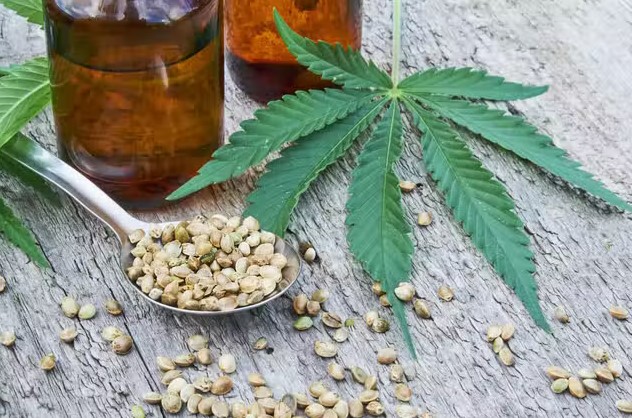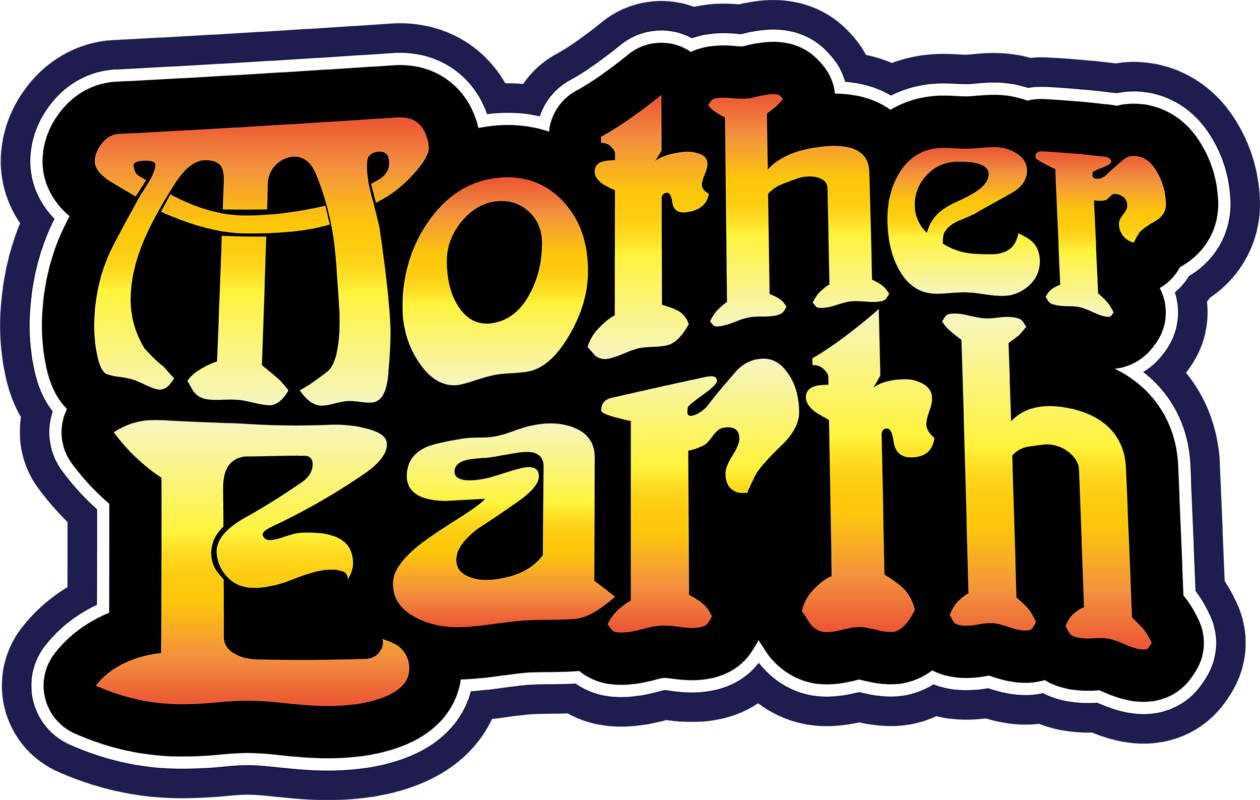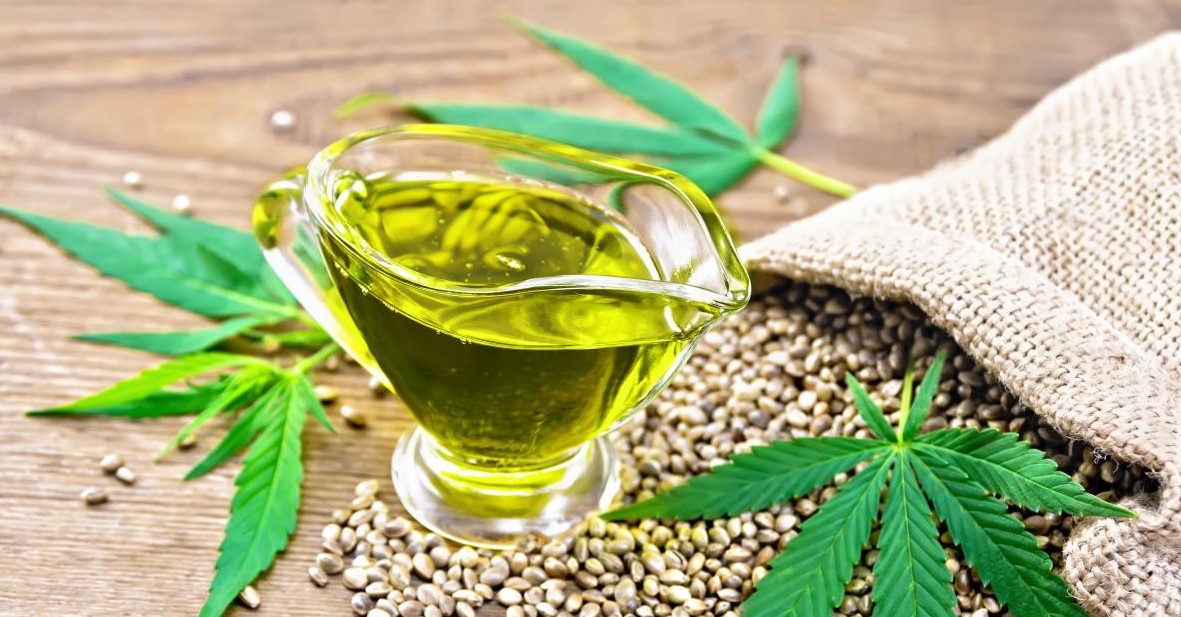Uncategorized
Hemp Oil: Hemp Oil Side Effects
We are just now learning the true potential of hemp, which is much greater than people realized. However, it still creates a lot of uncertainty. We’re clearing up the murkiness surrounding hemp oil and extract products to understand how to use them safely in order to reap their many advantages today.
An introduction to hemp
There are many Cannabis sativa varieties, each with its own set of cannabinoid chemicals (the psychoactive component) as well as nonpsychoactive components like CBD and others.
 Cannabis sativa plants that have more than 0.3 percent THC (much more) are often referred to as marijuana. Hemp is a Cannabis sativa variety that contains less than 0.3 percent THC (i.e., trace amounts) and will not make you high.
Cannabis sativa plants that have more than 0.3 percent THC (much more) are often referred to as marijuana. Hemp is a Cannabis sativa variety that contains less than 0.3 percent THC (i.e., trace amounts) and will not make you high.
Researchers have long been preoccupied with the psychoactive component in marijuana, delta-9-tetrahydrocannabinol (THC), and its study. However, within the last decade, they have grown more interested in the therapeutic effects of cannabidiol (CBD) and other cannabinoids present in both types but especially concentrated in hemp.
Although THC and CBD are the most studied cannabinoids, there are many more active compounds found within the plant, such as the phytocannabinoids cannabigerol (CBG), cannabichromene (CBC), cannabinol (CBN), and tetrahydrocannabivarin (THCV), as well as terpenes and flavonoids.
According to a recent study, whole-plant hemp oils and extracts that include other components are more beneficial than isolated CBD extracts for example. The entourage effect is a synergy phenomenon in which the combination of all compounds present together in the plant results in greater efficacy than if they were administered individually.
Different types of hemp oil
So, after reviewing all of the Cannabis sativa strains available, we’ve learned that hemp is a separate plant with genetically and phytocannabinoid-wise distinctions, and that “industrial” or “agricultural” hemp is a Cannabis sativa plant containing less than 0.3 percent THC. But what is the distinction between all of the hemp extracts on the market? Here’s how it breaks down:
Hemp oil extract
Hemp oil is made from hemp seeds. It’s derived from hemp leaves, flowers, and stems, primarily for the entourage of natural compounds called phytocannabinoids that it contains.
Cannabidiol (CBD) is the most well-known of these chemicals. Unlike isolated CBD extracts, whole-plant hemp oil, however, is a whole-plant extract with a mixed blend of numerous phytocannabinoids, terpenes, and flavonoids that work together to provide the entourage effect. Hemp oil with a wide spectrum contains all of the components present in full-spectrum hemp oil minus THC.
Cannabinoids affect and assist the endocannabinoid system, a homeostatic physiological mechanism that is involved with many areas of the body.
The ad has been placed on this page via third-party content, and we have no control over its availability.
Hemp seed oil
This is hemp oil that has been extracted from hemp seeds. Hemp seed oil, unlike hemp oil, contains very little of the phytocannabinoids and is primarily produced for its health-promoting fatty acid profile. It’s commonly used in cooking as well as to promote healthy skin, nails, and hair.
Hemp-derived CBD hemp oil
Cannabidiol, a phytocannabinoid found in cannabis, is one of the cannabinoids produced by hemp. CBD isolate is an isolated extraction of cannabidiol (CBD isolate). This implies it only contains CBD and does not reflect the full range of hemp’s natural compounds.
Hemp oil extract benefits
It promotes relaxation and eases stress
In clinical trials, hemp-derived CBD has been found to calm anxiety. CBD-rich hemp oil extracts have also been demonstrated to promote stress resistance and quality of life.
It nurtures the endocannabinoid system
What about the endocannabinoid system, which may be strengthened by daily support? Science shows that nurturing this unique (and comprehensive) physiological system is critical for its maintenance, optimum performance, and to promote a healthy endocannabinoid balance in our bodies. Phytocannabinoids from hemp oil are one effective and trustworthy method to do so.
It supports a good night’s sleep
Hemp CBD has also been found to help us sleep, with measurable benefits in clinical trials. This benefit is subject to timeliness (i.e., before bedtime) and dose (typically 40 mg or more of CBD), which presently lacks evidence and may be highly personalized.
CBD Hemp Oil Side Effects
While there is little scientific evidence for the use of Hemp oil, there is also little evidence of serious adverse effects. Keep in mind that because CBD Hemp oils are used as a wellness treatment, it is still very experimental.
During the clinical testing for an FDA-approved medication called Epidiolex, Hemp oil was subjected to one of the most comprehensive examinations. This study ran for 14 weeks and patients were given 20 mg per kilogram of body weight per day, which is more CBD than would be in most bottles of over-the-counter CBD. The following adverse effects were reported by patients in this research:

- Diarrhoea
- Vomiting
- Fatigue
- Pyrexia (fever)
- Somnolence (drowsiness)
- Abnormal results on liver-function tests
When I increased the doses, most of the side effects showed up early on.
Other known side effects include:
- Dry mouth
- Drowsiness
- Low blood pressure
- Lightheadedness
- Low appetite
- Weight loss
These adverse effects have all been discovered in previous CBD studies. However, there is a lot of uncertainty surrounding the long-term side effects of CBD Hemp oil usage.
What’s a Safe Dosage of Hemp Oil?
There are no regulations on Hemp oil dosages or usage, although the usual range is 5 mg to 25 mg each day.
Available forms include:
- Tinctures (CBD Hemp oil mixed with a base oil)
- Capsules
- Gummies
- Sprays
The method you employ is determined by your preference, as well as what you want to obtain out of the experience. For example, putting the oil under your tongue might produce results more quickly than swallowing a capsule that must be digested.
Each piece may require some variations to suit the form, so it’s critical to follow the instructions carefully.
How to Calculate a CBD Dose
Sprays, gummies, and capsules are simple to use since their dosages have been pre-determined. Tinctures are a bit more difficult because most oils come in 30 mL bottles with a dropper top to assist you measure.
Some tinctures have a concentration of 1,500 mg per 30 mL, while others have 3,000 mg per mL or more. This implies calculating the correct amount of CBD in milliliters of oil.
To figure out the correct dosage of CBD, note that each drop of oil equals 0.05 mL of solution. This implies that a 30-mL bottle of CBD oil has about 600 droplets in it.
If the concentration of the tincture is 1,500 mg per mL, one drop would contain 2.5 mg of CBD (1,500 mg ÷ 600 drops = 2.5 mg).


